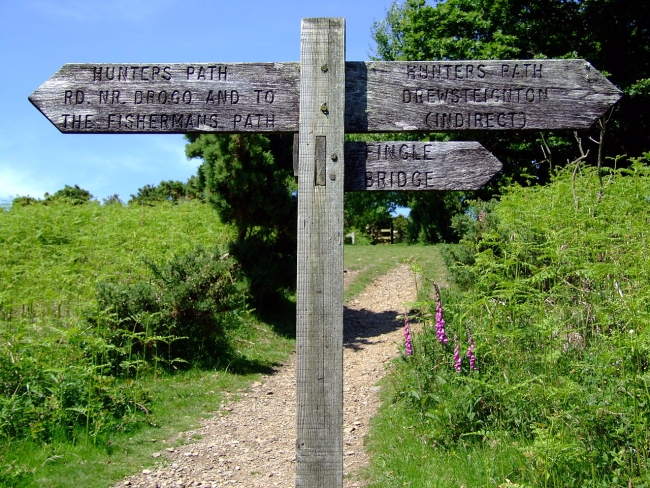You have /5 articles left.
Sign up for a free account or log in.

Wikimedia Commons
In my 10 years of interviewing and/or observing approximately 100 faculty members at various types of institutions, I have learned a great deal about how to shape and manage academic work in ways that promote meaningful, balanced, and satisfying careers. To prepare for a presentation at new faculty orientation at Saint Joseph’s University on academic career management strategies, I reviewed the field notes, interview transcripts, and publications from all of my past studies of academic careers with one question in mind: What strategies might best help new faculty members manage their academic careers during a time of rising expectations, decreasing resources, and diminishing boundaries between work and life?
From my review, I developed three categories of career management strategies that participants believed contributed to their professional success. The categories included: establishing a purpose, planning intentionally, and communicating strategically. Although these concepts are certainly not new, it is clear that the academic career and its complex settings are not always conducive to promoting these strategies.
Establishing a Purpose
A quick perusal of research-based and popular culture literatures reveals that establishing a purpose (also referred to as mission or vision) is a common suggestion to maximize professional and personal satisfaction and effectiveness. And yet, many academics lack a clear sense of purpose for their careers; many cannot answer the questions: "What do I most want to accomplish in my work and life? What are the best uses of my talents and passions?" Perhaps a reasonable explanation is that establishing and re-establishing a purpose requires time for ongoing reflective thought, which is a scarcity in today’s urgency-driven culture. My observations, interviews and data demonstrate that upholding a clear direction is vital.
Frank, a humanities professor at a community college, serves as a case of establishing a purpose. Prior to working at his current college, Frank taught students at well-resourced institutions for a number of years. During his first years at his community college, Frank acknowledged his concerns with working with a student population largely derived from chronically underserved communities. Determined to figure out his purpose in a community college setting, Frank established time for reflection, read theoretical and practical literatures on critical literacy, and discussed his evolving views with selected colleagues. By creating this physical and intellectual space for his own reflection, Frank decided that his purpose was to treat his marginalized students like intellectuals who are empowered to participate in their communities.
With his purpose in mind, Frank infused classical pieces into his classes that were originally deemed “too hard” for his students by some of his colleagues, re-established his traditional research agenda to role-model his own seriousness in scholarship, and reached out to an informal group of like-minded professors who were equally determined to support community college students in rigorous study and eventual transfer to four-year institutions.
Planning Intentionally
Establishing a purpose without an intentional plan will yield few results. The sociological theory of agency speaks to prioritizing what really matters in one’s work and life (purpose); in essence, it is about learning what to say yes to rather than the conventional advice of learning how to simply say no. Without an intentional plan, in essence developing a pre-prepared guideline or list of “rules” of what to say yes to, it is likely that people will remain susceptible to other’s needs or to circumstance. In my review, I detected a key pattern among participants: those who were most satisfied in their careers developed clear steps to reach or maintain the values espoused in their purpose.
An example of planning intentionally around one’s purpose is the case of Jeffrey, a chemistry professor at a research university. As a graduate student, Jeffrey developed the purpose of performing well in all of his teaching, service, and scholarship responsibilities. At mid-tenure review, he realized he was falling short in teaching and service because he had been so attentive to his department’s high research expectations. In response, Jeffrey did not lament his shortcomings as an all-around professor, but proactively developed an action plan that included reshaping his research program by switching from large-scale laboratory research to theoretical research in his field. Jeffrey’s adjustment to his research program meant that he no longer had the burden of managing a laboratory and its personnel. In turn, this allowed him time to form a departmental committee whose work was focused on teaching effectiveness. Together, these intentional planning strategies allowed Jeffrey the time to focus on career tasks aligned to his purpose.
Communicating Strategically
Although academics spend much of their time alone, there is extant literature highlighting that success in the academic profession is also contingent on collegial interactions and networks. It is important that academics clearly articulate and communicate their purpose to colleagues and administrators, which was another common theme in my data. To ensure that their colleagues and leaders did not interpret their focused interests as selfish behaviors, my participants regularly spoke in terms of “win-wins” by couching their purpose inside or in relation to institutional interests.
Heather, a biologist at a liberal arts college, demonstrates a case of clearly communicating her purpose and action plan to her institutional colleagues, leaders, and larger community. Through her reflections and experiences, Heather crafted a twofold purpose dedicated to promoting undergraduate research and educating the public on the role of science research in policy. Despite initial resistance from her colleagues and institution (at her previous comprehensive college and her current liberal arts college), Heather continued to engage with colleagues internally and externally to her institution about her goals, oftentimes providing evidence and best practices on how undergraduate research could be good for students, faculty, and the institution.
Moreover, in public and personal forums, Heather discussed her goals of educating the public on science research and in time, developed connections to interdisciplinary colleagues and organizations who fostered her work in this realm. Today, Heather, her colleagues, and her students participate in sponsored, collaborative research that is often highlighted in regional news outlets. Heather’s willingness to communicate her purpose resulted in her advancing undergraduate research and public education on scientific research.
I once read a quote about how people generally know the right thing to do, but the trouble lies in actually doing it. Most academics know the merits of establishing a purpose, planning intentionally, and communicating strategically; yet the realities of the academic career might thwart the best of intentions. Thankfully, we can turn to the insight of fellow faculty members, such as my study participants, who are striving to lead meaningful and effective academic careers.








